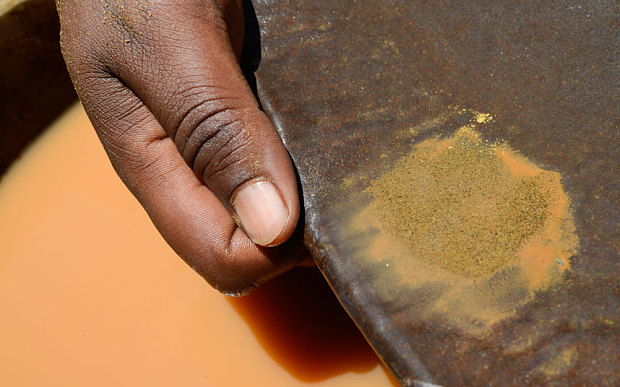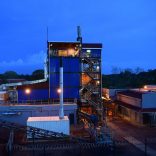Mozambique: Petromoc's profits tank 90% in 2024
Mozambique: Manica authorities suspend two gold mines after rivers polluted

FILE - For illustration purposes only. [File photo: Folha de Maputo]
The authorities in Manica, in central Mozambique, have suspended operations at two gold mines after a local river became polluted, threatening local agriculture and livestock, a provincial inspector for the sector told Lusa today.
The operations of the companies Clean Tech Mining and Gem Resources were suspended last week when they released waste from their mines into the Rovué, the main river flowing into the Chicamba reservoir, which supplies water and power to Manica province.
“Technically, the areas where they were working have enough space to open decantation or segmentation basins and be able to reuse the water” but in what was a “deliberate action” they released sludge into the river, Octávio Semba, a mining inspector at the provincial infrastructure services, told Lusa.
The companies discharged the sludge in the dead of night, when no one was watching. This has left the river’s water unsuitable for for livestock or the irrigation of agricultural fields, in an area in which the majority of local residents live form agriculture, Semba said. He added that the authorities did not know how long the practice had been going on.
The companies could face the withdrawal of their mining licences, the inspector said.
With these two cases, the total number of mining companies whose operations have been suspended for harming the environment in Manica since 2017 has risen to six, with two in 2017 and another two in 2018.
A further 10 mining companies officially continue to operate in the area, although five have suspended their activities because of the Covid-19 pandemic.
In May 2016, after 10 months of action by the environmental police, the provincial government announced that four of six polluted rivers in areas devastated by wildcat mining had been restored to health.
At the time, the pollution was because miners were extracting gold using mercury and borax.
The action taken at that time improved the quality of several watercourses in the region, including the Chimeza, Lucite, Nhancuarara, Zambuzi, Pungué, and Revué, although the latter two were never fully cleaned up.
“We cannot allow practices that are harmful to the environment,” stressed Semba, noting that it was a question of the pollution of rivers already restored by the environmental police, .
The district of Manica, which has rich mineral resources, is home to many gold and bauxite mines licensed to Mozambique and foreign companies, as well as many wildcat miners.












Leave a Reply
Be the First to Comment!
You must be logged in to post a comment.
You must be logged in to post a comment.